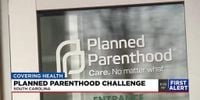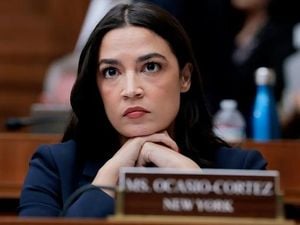In a legal battle that’s been simmering for years, Planned Parenthood South Atlantic has reignited its fight against South Carolina’s attempts to remove its clinics from the state’s Medicaid program, arguing that the move would devastate access to essential health care for thousands of residents. The latest chapter unfolded on August 21 and 22, 2025, as Planned Parenthood filed an amended lawsuit challenging both Governor Henry McMaster’s 2018 executive order and subsequent budget measures that block Medicaid reimbursements to the organization’s clinics—even for services entirely unrelated to abortion.
This legal skirmish isn’t just about abortion. At its core, the case centers on whether South Carolinians who rely on Medicaid can continue to receive preventive care—like breast and cervical cancer screenings, birth control, and testing and treatment for sexually transmitted infections (STIs)—at Planned Parenthood’s Columbia and Charleston health centers. According to The Hill and WRDW/WAGT, the clinics provide a broad range of non-abortion services, and Medicaid is already prohibited from paying for almost all abortions. In South Carolina, abortion itself is permitted only in the first six weeks of pregnancy, in certain medical emergencies, or in cases of rape or incest.
The origins of the dispute trace back to 2018, when Governor McMaster signed an executive order aiming to ban all Medicaid reimbursements to Planned Parenthood in the state. The order was quickly challenged in court, and legal proceedings have ping-ponged through the system ever since. The controversy escalated in June 2025, when the U.S. Supreme Court ruled that Medicaid patients do not have the right to sue to enforce their choice of provider, effectively clearing the way for South Carolina to exclude Planned Parenthood from its Medicaid program. The ruling, however, did not directly address whether the state could exclude providers for non-abortion services.
Planned Parenthood’s latest filing seeks to shift the legal argument. Instead of representing a Medicaid patient, the organization now contends that South Carolina is violating the Fourteenth Amendment’s equal protection clause by unfairly targeting Planned Parenthood for exclusion, even though it provides a wide array of essential, non-abortion health services. The complaint also challenges budget riders passed by the General Assembly that reinforce the exclusion, and it seeks emergency relief to ensure Medicaid patients can continue accessing care at the clinics while the case proceeds.
Paige Johnson, President and CEO of Planned Parenthood South Atlantic, minced no words in a statement shared with multiple outlets. “What started as a crusade against abortion has devolved into an even greater assault on essential, preventive care,” she said. “The cost of this political attack will be the health and well-being of hardworking South Carolinians—cancers will go undetected, STIs will go untreated, and people won’t have the birth control they need to plan their futures. Planned Parenthood South Atlantic provides high-quality, comprehensive health care, and any attempt to remove our health centers as a care option for patients with Medicaid is not only blatantly political but unconstitutional.”
The amended lawsuit also alleges that the state is seeking to claw back Medicaid funds previously paid to Planned Parenthood during the years when injunctions allowed it to remain a provider. The organization warns that forcing it to repay those funds would cause “irreparable harm” to its clinics and the patients who depend on them, especially if a new injunction isn’t granted to halt the state’s efforts.
South Carolina officials, for their part, have remained steadfast. Brandon Charochak, a spokesperson for Governor McMaster, dismissed the latest legal maneuver as “nothing more than a desperate, last-gasp attempt to relitigate an issue that has already been decided.” Charochak told The State and The Hill, “The U.S. Supreme Court has made clear that South Carolina has the right to exclude abortion providers from our Medicaid program.” Robert Kittle, spokesperson for Attorney General Alan Wilson, echoed this sentiment, expressing confidence that South Carolina’s position would ultimately prevail and describing the state as “proudly pro-life.”
Yet, the stakes for public health are significant. South Carolina faces some of the highest rates of chronic disease and infant mortality in the country. According to the South Carolina Department of Public Health, six in ten adults in the state suffer from at least one chronic disease, and four in ten deal with multiple chronic illnesses. Rates of STIs—including syphilis and HIV—are especially high, particularly among teenagers. In this context, advocates argue, limiting access to preventive care through Medicaid could have dire consequences for vulnerable populations.
Planned Parenthood’s legal strategy has evolved in response to shifting judicial winds. The original lawsuit, filed in 2018, claimed that McMaster’s executive order violated federal law allowing Medicaid patients to seek care from any qualified provider. After the Supreme Court’s June 2025 decision, Planned Parenthood amended its complaint to focus on constitutional grounds, specifically the equal protection clause, and to challenge not just the executive order but also the legislative budget provisions that reinforce the exclusion.
The national landscape is shifting as well. Texas, Arkansas, and Missouri already block Planned Parenthood from seeing Medicaid patients, and, according to The Hill, the organization expects other Republican-led states to follow suit. Meanwhile, a provision in a recently signed national tax and spending law aimed to ban all Planned Parenthood clinics from Medicaid participation for one year. A federal judge has blocked that provision from taking effect in other states, allowing patients elsewhere to continue receiving contraceptives and other services while litigation unfolds. However, that order does not apply to South Carolina.
Supporters of the exclusion argue that taxpayer funds shouldn’t flow to organizations that provide abortions, even if those funds are earmarked for unrelated services. Opponents counter that the policy is less about fiscal responsibility and more about political ideology, pointing out that Medicaid funding for abortion is already tightly restricted and that the real-world impact will be felt most acutely by low-income patients who may have no alternative providers.
The amended lawsuit, filed in both federal court and public view, has reignited debate over the intersection of health care, politics, and constitutional rights in South Carolina. As the case moves forward, the outcome will determine not only the fate of Planned Parenthood’s clinics in the state but also the broader question of whether states can single out providers for exclusion from Medicaid, even when the services at issue have nothing to do with abortion.
The legal wrangling is far from over, but for now, the future of preventive care access for thousands of South Carolinians hangs in the balance—caught between courtroom arguments, legislative maneuvers, and the everyday needs of patients seeking care.





